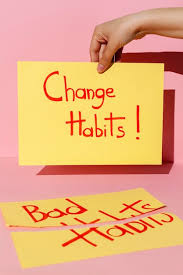Submitted by: Lindsey Lane, Masters Student, Clinical Mental Health Counseling (Wake Forest University)
Middle school and high school are times in a young adult’s life where everything feels new. They are learning to live in new bodies, feeling feelings they have never felt before, starting to form their own identity, and oftentimes making new friends. With all of these changes often comes a little anxiety, a little stress, and perhaps a little depression as they learn to navigate their life.
If you have noticed your teen is feeling anxious, down, or not themselves, know that they are not alone. Adolescent girls face a myriad of concerns that can affect their physical and mental wellbeing. The characteristics which emerge during adolescence involve: a tendency to experiment and seek novel experiences, a heightened sense of vulnerability, a low-risk perception, an intense desire for independence, and an inner search for self-identity which gradually shape up their personality throughout the developing years (Nebhinani & Jain, 2019, p. 4). Depression and stress are more prevalent among school-going adolescent girls. Approximately 40%–90% of adolescents with depression have a comorbid psychiatric disorder such as anxiety disorders, conduct disorders, substance abuse, and personality disorders in the case of adolescents (Nebhinani & Jain, 2019, p. 4).
Adolescence is a time of unique psychiatric presentation. Among adolescent girls, anxiety followed by mood is the most common psychiatric disorder, and disorders result in the greatest negative impact on daily functioning and the highest experienced distress in teen girls (Black, & Rofey, 2018, p. 171). In addition, teenage girls suffer from issues related to bullying and cyberbullying, body image, eating disorders, identity, dating and sex, and family related stress.
As parents, it is a scary feeling to not know how to help your teen. When you see your teen struggling, the first step is to reach out to them – to let them know that you see them, hear them, and are there to support them. Letting your teen know that you are an ally will encourage them to open up to you, rather than to shut you out when things get difficult. If your child’s distress rises beyond a normal level (not just school issues and mood swings) to a more serious level it is important to seek professional help; meeting with a therapist can prevent minor issues from turning into major problems (Morin, 2020). Counseling can help your teen in many different ways, including:
- Managing stress
- Coping with anxiety and depression
- Addressing substance misuse
- Working through interpersonal issues with friends or family
- Understanding and talking through bodily changes
- Boosting self-esteem
- Gaining self-awareness
- Correcting negative though patterns
- Improving school performance
In addition to counseling, there are many things you can do at home to help manage your teen’s anxiety and/or depression. Below are some suggestions that you can offer your teen when she is feelings depressed or anxious:
- Going on a walk
- Taking a long shower or bath
- Listening to music
- Calling a friend
- Journaling
- Meditating
- Getting some fresh air
- Cooking a meal
- Drawing, painting, or some other artistic expression
- Reading a book
Know that your teen is not alone in this journey. When distress rises beyond normal levels, counseling can offer a safe space for your teen to express their emotions, fears, and concerns, as well as feel supported to grow and overcome. In counseling, your child can learn to develop healthy coping mechanisms to work through anxiety and depression, and can use these mechanisms in times of distress. Outside of counseling, you can create a safe environment at home for your teen through open communication and support – let you teem know that you are on her side! Sharing tips and tricks with her at home and creating a space where she can express her emotions will make he feel supported, loved, and understood.
References
Black, & Rofey, D. L. (2018). An overview of common psychiatric problems among adolescent and young adult females: Focus on mood and anxiety. Best Practice & Research. Clinical Obstetrics & Gynaecology, 48, 165–173. https://doi.org/10.1016/j.bpobgyn.2017.08.007
Morin, A. (2020, December 15). Why you should bring your teen to therapy. Verywell Mind. Retrieved August 30, 2022, from https://www.verywellmind.com/top-reasons-teens-go-to-therapy-2609138
Nebhinani, N & Jain, S. (2019). Adolescent mental health: Issues, challenges, and solutions. Annals of Indian Psychiatry (Online), 3(1), 4–7. https://doi.org/10.4103/aip.aip_24_19




